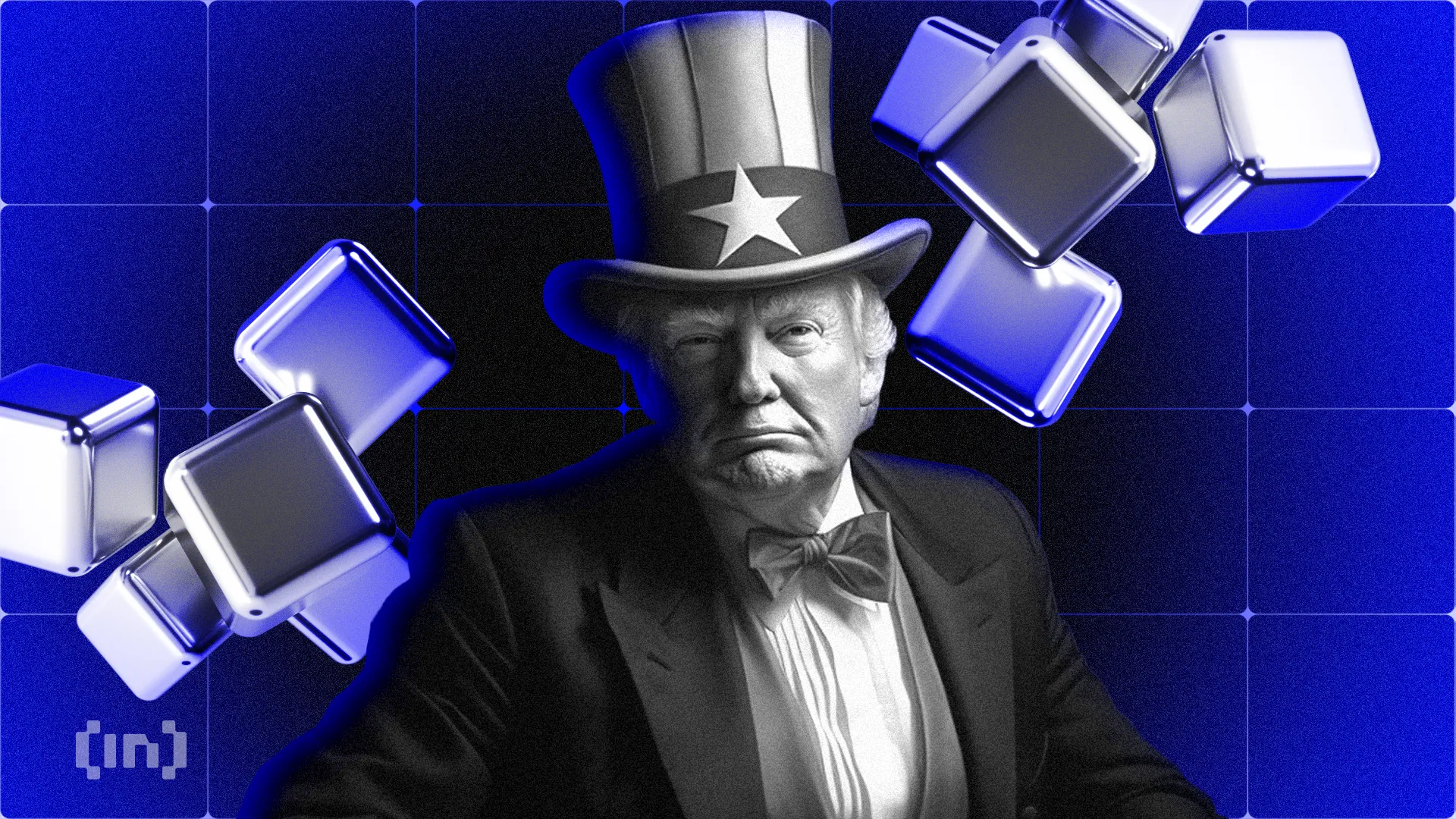Regulation
Crypto PAC Endorses 18 More Candidates for November Elections

The Stand With Crypto PAC has endorsed 18 more candidates for the November elections. This list of endorsements comprises 15 incumbents and splits the votes to almost a 50/50 ratio between the Democrats and the Republicans.
The PAC is aimed at strengthening the supporters in the political field as the industry works to guarantee that the cryptocurrency and blockchain technologies remain supported in the United States.
Latest Endorsements from Stand With Crypto PAC
New name ambassadors of the Stand With Crypto PAC include senators Kirsten Gillibrand of New York and Rick Scott of Florida, and representatives Dan Goldman of New York, and Young Kim of Califonia. Other candidates that have been endorsed by the PAC include Blake Masters in Arizona for the House seat and Sarah McBride in Delaware for the same.
The PAC has identified these candidates as having a strong appreciation and commitment to expanding the use of cryptocurrency and blockchain technology in the U.S.
A few thousand votes in a handful of states decided the last Presidential election. Do you really want your preferred candidate to stand against 52M Americans who have owned a digital asset and >1M Americans who have declared this intent around digital assets this time around? https://t.co/f1qlfOJ6da
— paulgrewal.eth (@iampaulgrewal) June 17, 2024
In a recent tweet, Paul Grewal, the Chief Legal Officer of Coinbase, highlighted the significance of the crypto vote, stating that the election could be influenced by a few votes in key states. He noted that a large population of Americans is engaged in digital assets and mentioned that political positions on crypto may factor into voters’ choices.
Growing Influence of Crypto Voters
Stand With Crypto PAC revealed that more than 52 million people in the United States own some form of digital currency and 87% of them want to replace the current financial system ‘as it is.’ The PAC has also pointed out that 45% of the surveyed would not vote for the anti-crypto candidate.
The recent approval of “Financial Innovation and Technology for the 21st Century Act” also known as the FIT21 by the House of representatives is evidence of increasing bipartisan on issues to do with cryptocurrency.
The bill, which seeks to provide a legal framework for cryptocurrencies and digital assets in the U.S., was approved with a comfortable margin of 278-136 votes. Although it was sponsored by Republican lawmakers, it was also supported by a large number of Democrats.
Challenges and Strategic Shifts in the Senate
Despite the success in the House, the FIT21 bill faces challenges in the Democrat-controlled Senate, where some critics of cryptocurrency, such as Senator Elizabeth Warren, are influential. The crypto community has not relented and is pushing to ensure that the bill is passed to maintain the momentum.
To this end, Congressman Ro Khanna is scheduled to hold a roundtable conference in Washington, D. C. next month. This event will involve the Biden Administration, Congress, and the crypto industry to map out strategies on how the U. S. can continue to foster innovation in blockchain technology.
In addition, the recent involvement of the former President of the United States, Donald Trump, in the crypto space has also helped to bring this issue to light. Trump has accepted Bitcoin Lightning payments for campaign contributions and has vowed to undo what he has called “Joe Biden’s war on crypto. ” His backing of the Bitcoin market also includes inviting key U. S. Bitcoin miners to a roundtable meeting at Mar-a-Lago.
Read Also: Shiba Inu (SHIB) Exec Touts Important Industry Collaboration, Will This Reboot Price
The presented content may include the personal opinion of the author and is subject to market condition. Do your market research before investing in cryptocurrencies. The author or the publication does not hold any responsibility for your personal financial loss.
Regulation
USDC Issuer Circle Set To File IPO In April, Here’s All

USDC issuer Circle is reportedly set to file its initial public offering (IPO) in April as part of the firm’s plans to finally go public. The stablecoin issuer is allegedly already working with top financial institutions to achieve this move.
Circle To File IPO In Late April
According to a Fortune report, Circle is looking to file its IPO in late April, although the listing period remains uncertain. The report noted that when a company files to go public, its shares usually begin trading four weeks later, indicating that the listing could occur in May. However, there is also a scenario where the IPO process could drag on for months.
The stablecoin issuer is reportedly working with investment banks JPMorgan Chase and Citi to achieve its long-anticipated IPO. The firm had previously tried to go public in 2021 under a SPAC arrangement with a shell company.
The US SEC failed to sign off on this arrangement back then, and the company eventually scrapped these IPO plans by the end of 2022 when the crypto exchange FTX collapsed and the broader crypto market experienced a downturn.
Revelation about Circle’s IPO plans comes just days after the stablecoin issuer partnered with NYSE’s parent company to explore USDC’s use in traditional finance (TradFi). Meanwhile, the USDC stablecoin recently launched in Japan following approval from the country’s regulator. Notably, USDC is the first and only global dollar stablecoin approved under Japan’s stablecoin framework.
An Easier Path Now For The Stablecoin Issuer
Circle will likely face less resistance for its IPO plans under the current SEC administration. Under acting Chair Mark Uyeda, the Commission has shown its willingness to work hand in hand with crypto firms, which was missing under Gary Gensler’s administration.
US SEC Chair nominee Paul Atkins has also shown his willingness to change the approach that Gensler’s administration adopted towards crypto firms. During his nomination hearing, the SEC Chair nominee promised to prioritize providing regulatory clarity for the industry.
Circle’s IPO listing would be the biggest since the top crypto exchange Coinbase went public in 2021. Interestingly, Coinbase owns an equity stake in the crypto firm.
The firm’s USDC is currently the second-largest stablecoin by market cap, only behind Tether’s USDT. The stablecoin industry is heating up as more financial institutions look to develop their own stablecoin.
Donald Trump’s World Liberty Financial recently revealed plans to launch its USD1 stablecoin, while asset manager Fidelity is also considering doing so.
Disclaimer: The presented content may include the personal opinion of the author and is subject to market condition. Do your market research before investing in cryptocurrencies. The author or the publication does not hold any responsibility for your personal financial loss.
Regulation
Japan Set To Classify Cryptocurrencies As Financial Products, Here’s All

Cryptocurrency investors in Japan are bracing for impact following a plan to reclassify digital assets as financial products. While the plan has elicited excitement from cryptocurrency enthusiasts in the Far East, the ambitious plan will have to scale several legislative hurdles.
Japan Targets Reclassification Of Cryptocurrencies As Financial Products
According to a report by Nikkei, Japan’s Financial Services Agency (FSA) is inching toward classifying cryptocurrencies as financial products. Per the report, the FSA intends to achieve the reclassification via an amendment to the Financial Instruments and Exchange Act.
Currently, digital assets in Japan are considered crypto assets conferred with property rights and seen as payment means. Under the FSA’s plans, cryptocurrencies in Japan will be treated as financial products in the same manner as traditional financial products.
The FSA says it will adopt a slow and steady approach toward the reclassification, carrying out “a private expert study group” to test the waters. If everything goes according to plan, the FSA will submit the amended bill to Parliament in early 2026.
The classification of cryptocurrencies as financial products will have far-reaching consequences for the local ecosystem. Experts say treating cryptocurrencies as financial products will bring Japan closer to a crypto ETF launch amid a changing regulatory landscape.
Furthermore, the move may lower current cryptocurrency taxation for local investors since existing capital market rules will apply to the asset class.
A Fresh Bill For Crypto Insider Trading Is Underway
Apart from the reclassification, the FSA disclosed plans for new legislation against insider trading. The move flows treating cryptocurrencies as financial products and will strengthen existing investor protection rules.
“It is a direction to establish a new insider trading regulation that prohibits trading based on unpublished internal information,” said the FSA. “We will develop laws to prevent unfair transactions.”
However, Japan’s cryptocurrency scene is heating up to a boil, driven by local and international players. Last week, stablecoin issuer Circle secured approval from the FSA for USDC with top exchanges set to list the stablecoin.
Japan’s Metaplanet has tapped Eric Trump to join its Strategic Board of Advisors as it continues to load up Bitcoin.
Disclaimer: The presented content may include the personal opinion of the author and is subject to market condition. Do your market research before investing in cryptocurrencies. The author or the publication does not hold any responsibility for your personal financial loss.
Regulation
Kentucky Governor Signs Off On ‘Bitcoin Rights’ Bill, Strengthening Crypto Protections


In what is being dubbed a major development in the crypto regulation space, the Governor of the US state of Kentucky, Andy Beshear, has signed the ‘Bitcoin Rights’ bill into law. The law promises to safeguard protections for Bitcoin (BTC) users.
Bitcoin Rights Bill Comes Into Effect
Crypto regulations continue to evolve under pro-crypto US President Donald Trump’s administration. In the latest development, Kentucky has become the newest state to enshrine protections for digital asset users.
In an X post published on March 24, crypto advocacy group Satoshi Action Fund announced that Governor Beshear had signed the much-anticipated Bitcoin Rights bill into law. The post stated:
The right to self-custody, run a node, and use of digital assets is now protected for millions of Americans without fear of discrimination.
The bill was first introduced to the Kentucky House by Rep. Adam Bowling on February 19. According to the bill’s description, it seeks to safeguard users’ rights to use digital assets and self-custody wallets. Additionally, it aims to prohibit local zoning changes that discriminate against crypto mining operations.
The legislation outlines guidelines for running a digital asset node and excludes digital asset mining from money transmitter license requirements. It also clarifies that crypto mining or staking is not considered an offer or sale of securities.
On February 28, the bill passed Kentucky’s House of Representatives with a unanimous vote of all 91 representatives in favor. It later passed the Kentucky Senate on March 13, receiving backing from all 37 senators.
Kentucky’s proactive stance toward cryptocurrencies isn’t new. Earlier this year, the state became the 16th US state to introduce legislation seeking to create a Bitcoin strategic reserve.
Meanwhile, neighboring state Arizona is also joining the crypto movement. A recent X post by Bitcoin Laws revealed that Arizona’s House Rules Committee has passed two Bitcoin reserve bills — SB1373 and SB1025. These bills will now head to a full floor vote.
Renewed Optimism Under Trump Administration
Following Trump’s victory in the November presidential election, cryptocurrency regulations in the US are evolving rapidly, with many states introducing legislation aimed at strengthening their digital asset ecosystems and attracting crypto businesses.
Positive changes in crypto regulations are encouraging industry businesses to expand. For instance, leading crypto trading platform Coinbase recently announced plans to hire 1,000 employees in the US.
The Trump administration has also witnessed several lawsuits being dropped against major crypto entities, including Kraken, Coinbase, Gemini, and others. At press time, Bitcoin trades at $87,399, down 0.2% in the past 24 hours.

Featured Image from Unsplash.com, chart from TradingView.com

Editorial Process for bitcoinist is centered on delivering thoroughly researched, accurate, and unbiased content. We uphold strict sourcing standards, and each page undergoes diligent review by our team of top technology experts and seasoned editors. This process ensures the integrity, relevance, and value of our content for our readers.
-

 Market24 hours ago
Market24 hours agoBitcoin Price Battles Key Hurdles—Is a Breakout Still Possible?
-

 Bitcoin21 hours ago
Bitcoin21 hours ago$500 Trillion Bitcoin? Saylor’s Bold Prediction Shakes the Market!
-

 Altcoin20 hours ago
Altcoin20 hours agoWill XRP, SOL, ADA Make the List?
-

 Bitcoin22 hours ago
Bitcoin22 hours agoBig Bitcoin Buy Coming? Saylor Drops a Hint as Strategy Shifts
-

 Market21 hours ago
Market21 hours agoCoinbase Stock Plunges 30% in Worst Quarter Since FTX Collapse
-

 Market19 hours ago
Market19 hours agoTrump’s USD1 Stablecoin Eyes Trust Recovery in Crypto
-

 Altcoin19 hours ago
Altcoin19 hours agoBTC, ETH, XRP, DOGE Fall Following Weak PMI, JOLTS Data
-

 Altcoin18 hours ago
Altcoin18 hours agoBinance Update Sparks 50% Decline For Solana Meme Coin ACT: Details






















✓ Share: